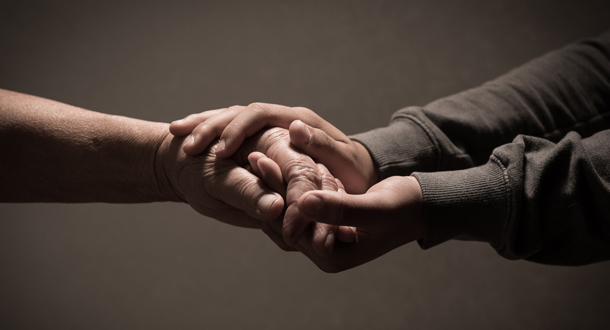 Scripture:
Scripture:
1 Kings 8:1-7, 9-13
Mark 6:53-56
Reflection:
Solomon built a magnificent temple, and threw a lavish, vast celebration enthroning the Ark of the Covenant in it. He then declared that this was the dwelling place of God, built by human hands to hold the Almighty.
There’s only one problem. God cannot be contained in a building nor owned by one people. As Bonaventure (and others) said, God is the infinite one whose center is everywhere and whose circumference is nowhere. Revelations says that God’s dwelling place is with the human race – not just one people, religion, or nation, but everyone. Centuries later, Jesus proved it. He healed foreigners and pagan Romans, forgave prostitutes, ate with sinners, and decried the strict laws and temple practices that excluded people or reflected a grip on power by the priests and scribes of his day. He consistently went outside the boundaries to prove that God’s love, care, and indwelling presence is universal and cannot be safely enclosed in our images and boxes.
Despite all this evidence against it, today we too often think that God dwells in the church building, but not in our offices, streets, or homes. We think that strict rules defining who is “in” or “out” reflect the mind of God and determine who qualifies as a recipient of God’s favor. We think Christians own God, and the people of other faith traditions can be despised and cast aside. We think people of different skin color from ours are evil-minded and outside our duty to be compassionate, welcoming, and healing. If we are truly listening to the Gospel message of Jesus, how did we get so blind and close-hearted? God must look at our world and cry.
Unfortunately, as individuals we can’t unilaterally change the systemic mindsets that allow these things to happen. But what we can do is what Jesus did – start locally. Jesus didn’t immediately head off to Jerusalem; he started in his own hometown. As Paul says in Acts of the Apostles, he went about “doing good and healing”. Gradually he was able to make more and more of a difference and expand his reach.
What can you do to actively participate in making the world a better place? Can you take on responsibilities in your parish that allow you to uphold the best of our faith tradition in the face of abuse and misuse of power? Can you volunteer at non-profit organizations that feed the hungry, house immigrants, serve needy children, or help those who increasingly fall through our society’s unraveling safety nets? Can you speak up when you hear classes of people or other faiths being reviled? Can you set aside your own grasp on privilege and power, being willing to use what you have to help those who don’t have it? Can you consciously live as Jesus did – a beacon of peace, acceptance, and hope to everyone he encountered?
Compassion, care, inclusion, and love are at risk in our world today. God is calling each one of us to do what we can to live by the core messages of the Gospel of Jesus Christ, not by trying to “contain” God but by living the moral and ethical demands that Jesus calls us to fulfill.
Amy Florian is a teacher and consultant working in Chicago. For many years she has partnered with the Passionists. Visit Amy’s website: http://www.corgenius.com/.
